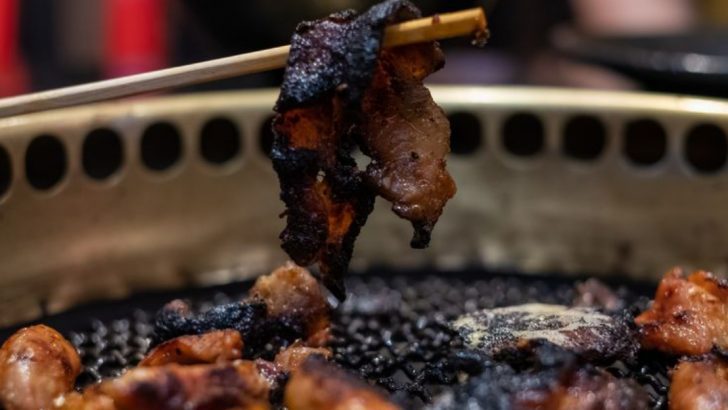Grilling is one of the most flavorful ways to cook—but certain habits can turn those smoky meals into health risks. Charred meats, flare-ups, and chemical starters can lead to compounds like HCAs and PAHs that have been linked to cancer.
The good news? Many of these risks are easy to reduce with small, simple changes.
Here are 15 common grilling mistakes that could increase carcinogen levels—and how to grill smarter without losing flavor.
1. Overcooking Or Charring Meat
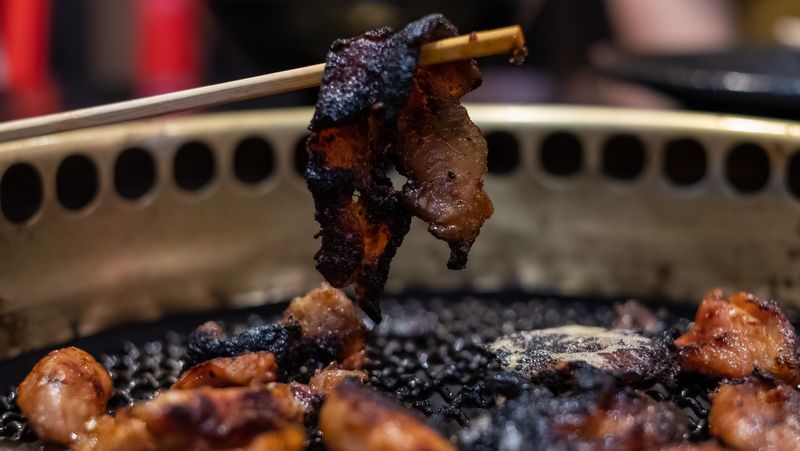
When meat is left on the grill too long, dark crusts and blackened edges form—especially on thinner cuts or skewers. That crisp exterior may seem appetizing, but it’s a red flag for HCAs.
Charred meat has higher levels of carcinogenic compounds, so aim for golden brown rather than blackened, and pull it off while juicy.
2. Grilling At Too-High Temperatures
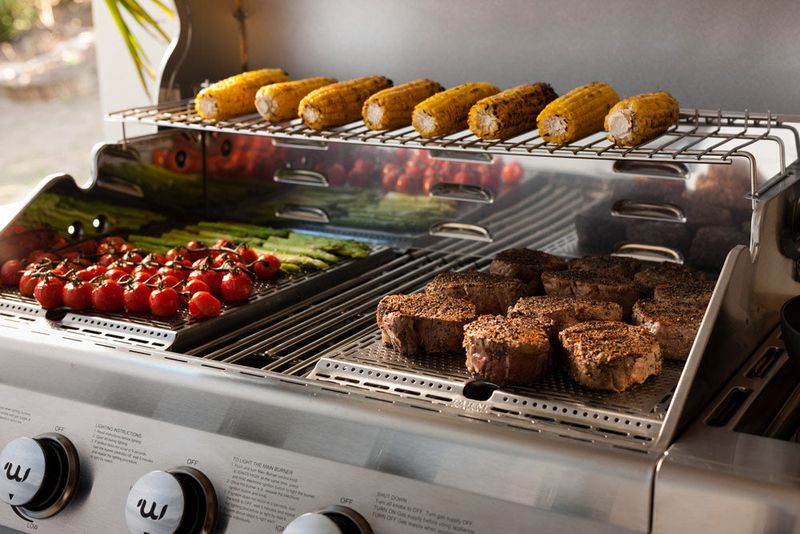
Blasting food with intense heat speeds up cooking but increases chemical reactions that form HCAs and burn the surface. The inside often remains undercooked while the outside darkens quickly.
Use moderate heat and allow extra time—your food will cook more evenly and stay safer.
3. Letting Fat Drip And Flare Up Flames
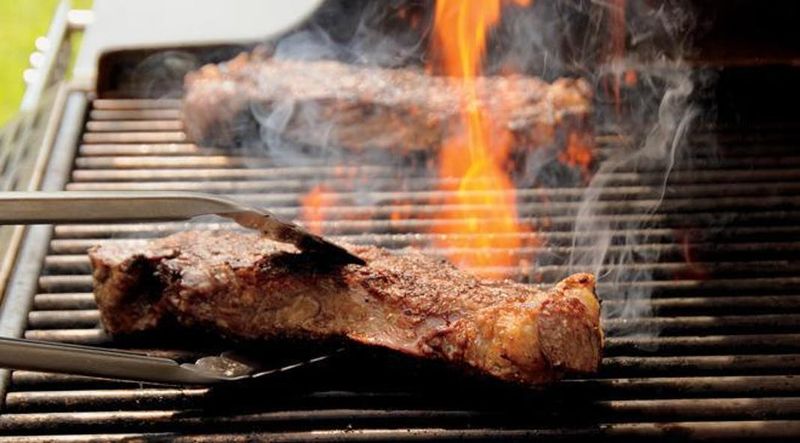
Melting fat that drips onto hot coals causes sudden bursts of flame, which creates smoky clouds rich in PAHs. Those harmful chemicals settle back onto the surface of the food.
Trim excess fat, use foil or drip pans, and avoid placing cuts directly above hot flames.
4. Not Cleaning The Grill Grates
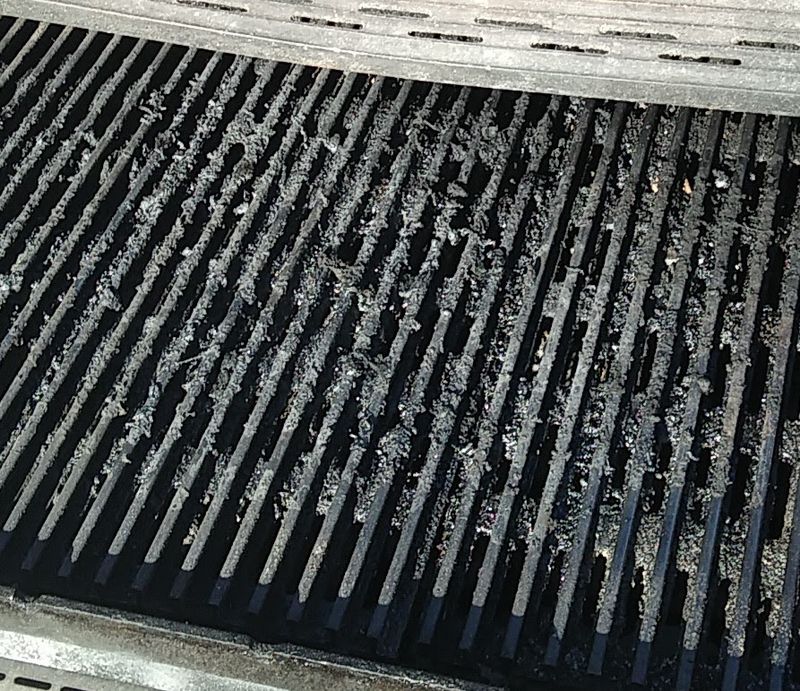
Old grease and burnt food remnants stick to grill grates and become more toxic with each use. That buildup gets reheated into smoke and transferred to your next meal.
Scrub the grates before and after every session to reduce residue and enjoy cleaner flavor.
5. Using Sugary Marinades Without Timing
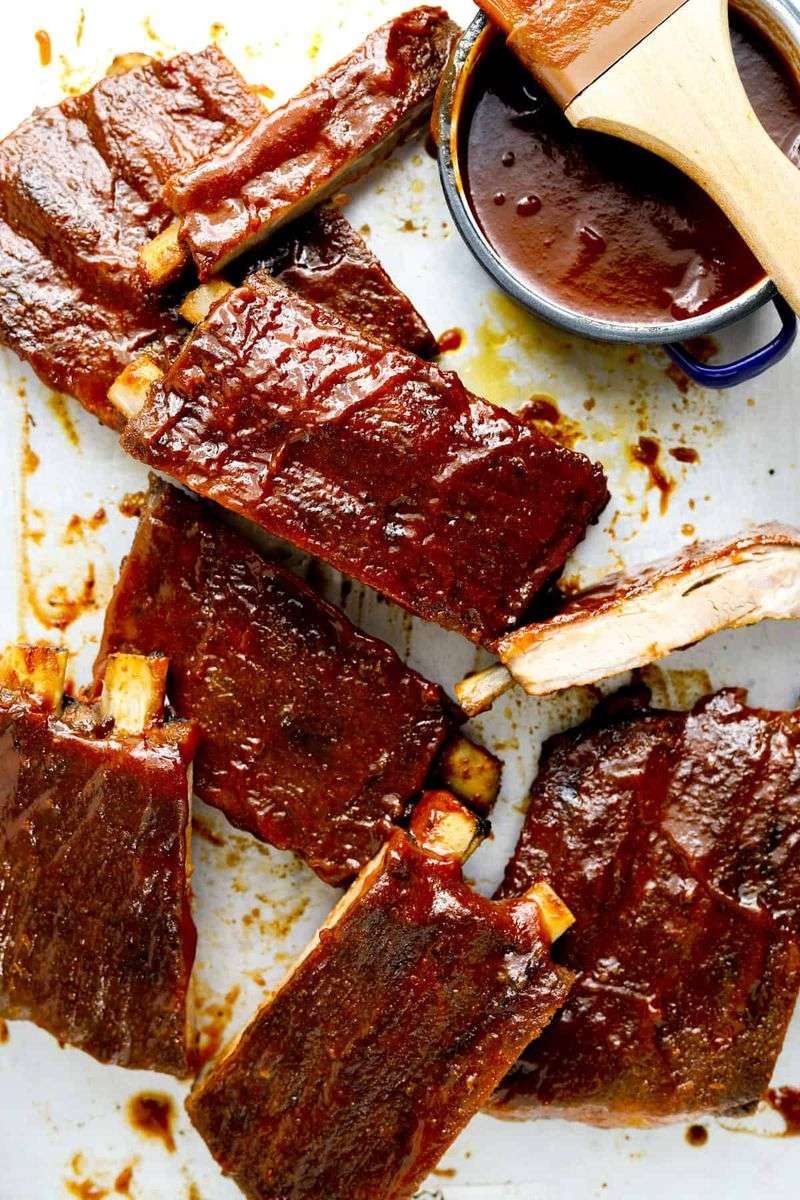
Sugar burns quickly on hot grates, creating bitter, black spots that don’t just taste off—they also boost carcinogen levels. Glazes, sauces, and sweet marinades need careful timing.
Add sugary marinades during the last few minutes of cooking when the heat’s lower and less direct.
6. Cooking Processed Meats Like Hot Dogs
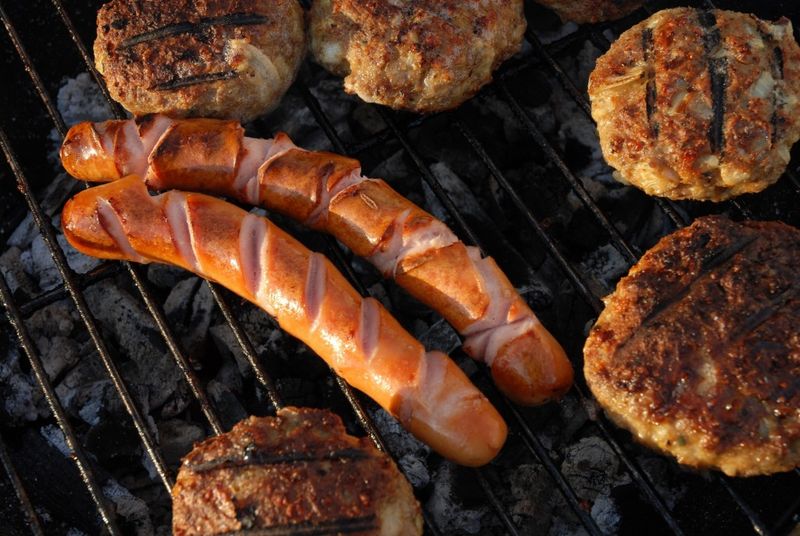
Cured meats already contain nitrates and nitrites, which convert into nitrosamines during high-heat cooking. These compounds are linked to increased cancer risk.
Swap in fresh chicken, seafood, or vegetables instead of making processed meats your go-to.
7. Grilling Without Pre-Cooking
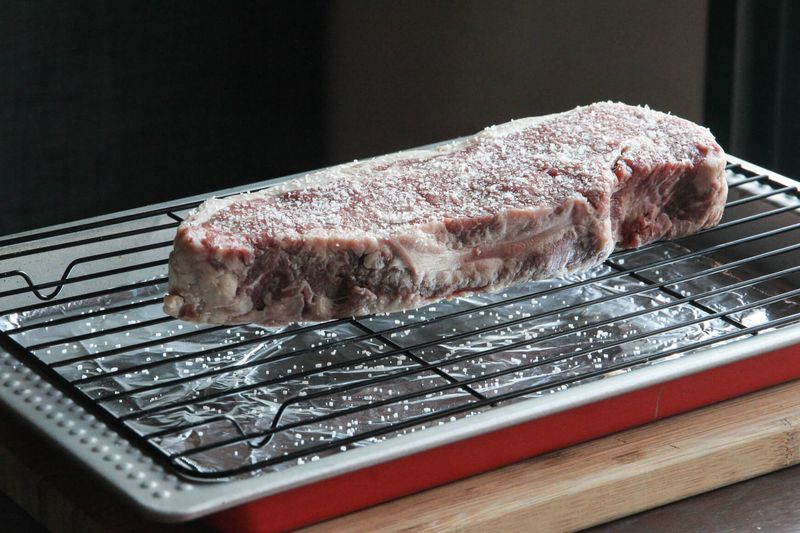
Raw meat placed directly over fire takes longer to cook, especially thick cuts. That extended grill time means more exposure to heat and a greater chance of surface charring.
Partially cook thick cuts in the oven or microwave, then finish them on the grill for flavor with less time on high heat.
8. Leaving Marinades Off Completely
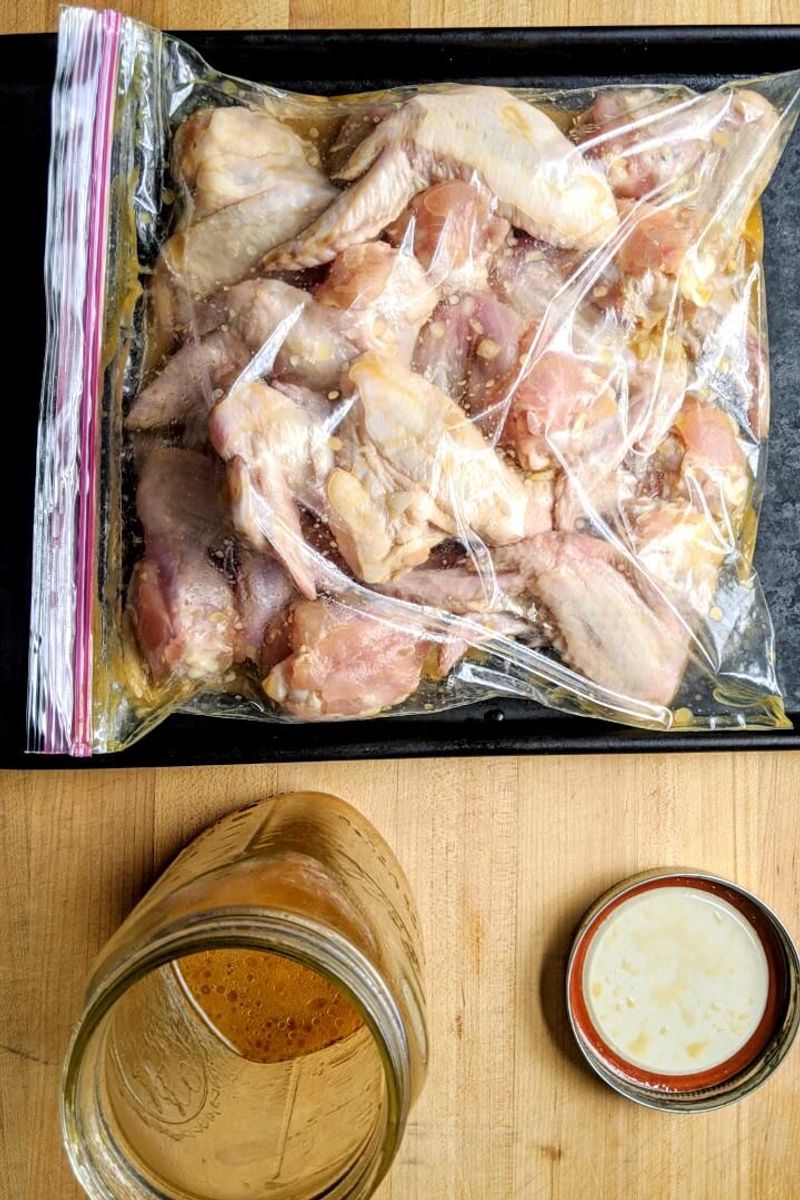
Marinades don’t just add flavor—they also help shield meat from forming HCAs and PAHs. Acidic bases like vinegar or citrus slow chemical changes.
Adding garlic, rosemary, thyme, or lemon juice boosts protection while enhancing taste with zero downside.
9. Using Lighter Fluid Or Chemical Starters
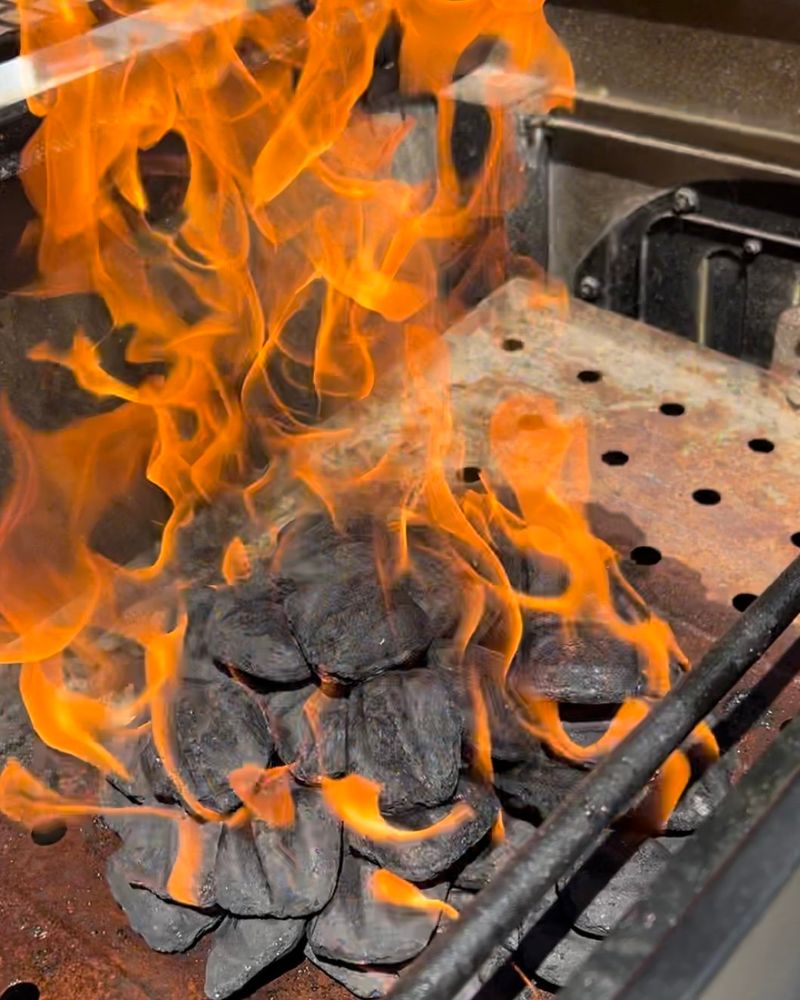
Chemical accelerants make fire start faster, but they also leave behind fumes and residues that rise up and cling to your food. The smell lingers long after the flames die down.
Choose chimney starters, electric lighters, or natural fire starters to avoid those extra chemicals on your grill.
10. Ignoring Lean Cuts Of Meat
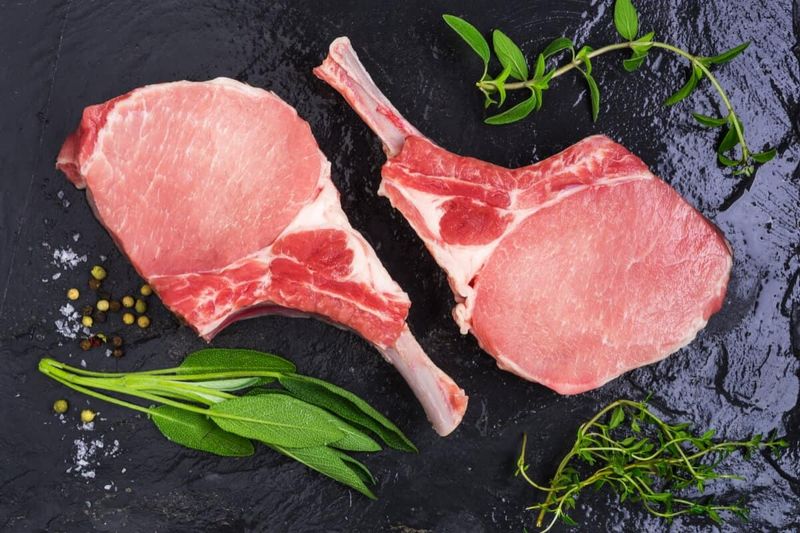
Fattier meats drip more grease, leading to flare-ups and heavier smoke. That smoke carries PAHs that get deposited onto the surface of your food.
Choose leaner cuts and pair them with moisture-rich marinades to keep things tender and flavorful without the grease.
11. Not Flipping Meat Frequently
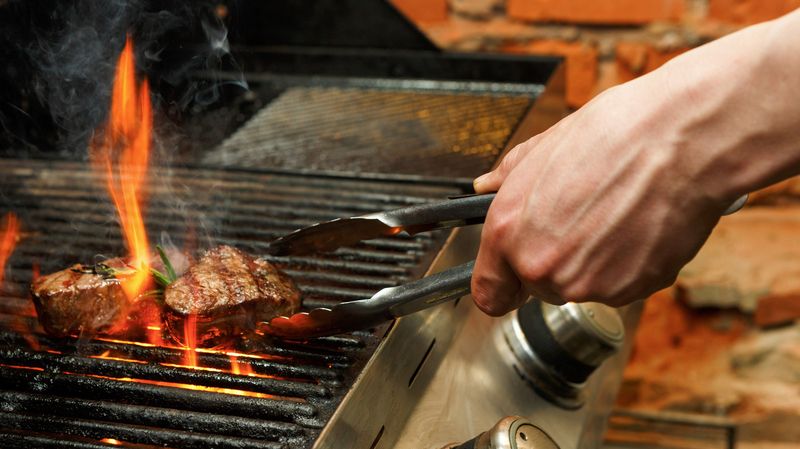
Leaving food in one spot allows the underside to darken too much while the top remains raw. Extended contact with the grate builds up char and increases HCA formation.
Flip every couple of minutes for even browning, reduced burn risk, and better texture all around.
12. Keeping The Lid Closed The Whole Time
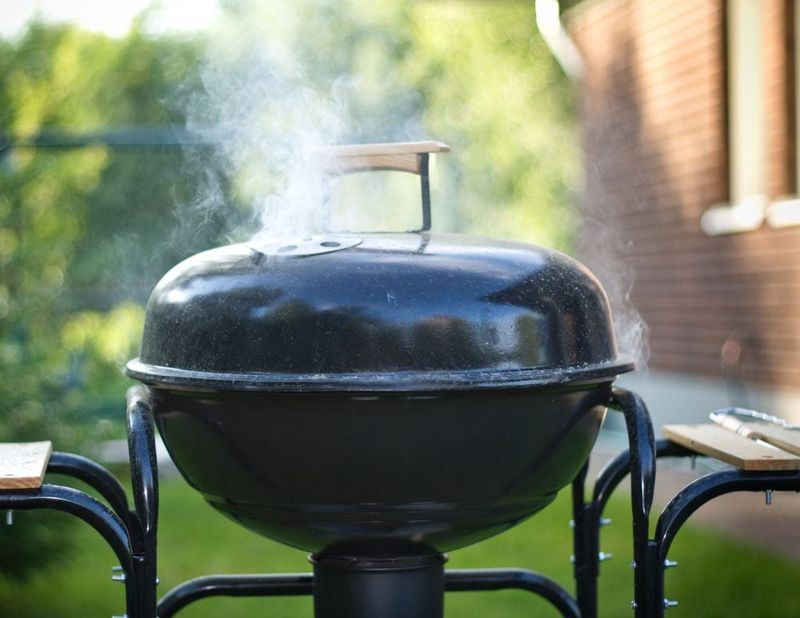
Trapped smoke builds up inside the grill, especially if fat’s dripping or sugary sauces are cooking. Without ventilation, toxins concentrate and coat the food.
Lift the lid occasionally to release smoke and cool down hot spots, preventing overexposure to harmful compounds.
13. Grilling With Charcoal Too Close To The Food
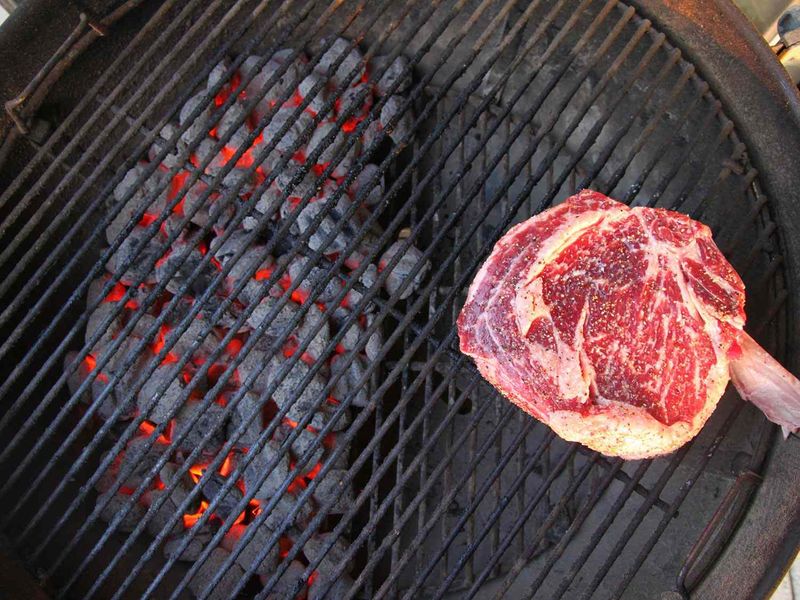
Food placed right over glowing coals gets blasted with radiant heat and soot. That close contact also invites PAHs from the burning fuel.
Raise the grate or bank coals to one side for indirect cooking that keeps smoky buildup lower.
14. Not Trimming Excess Fat Before Cooking
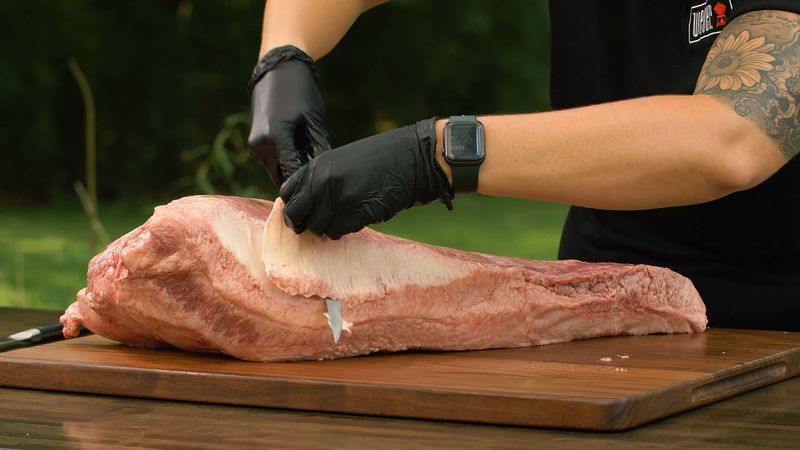
Thick fat edges drip steadily and flare often, scorching the meat above. These flare-ups are a major source of PAHs and uneven cooking.
Trim visible fat to a thin layer, or use marinades to add richness without relying on extra grease.
15. Skipping Antioxidant-Rich Marinades
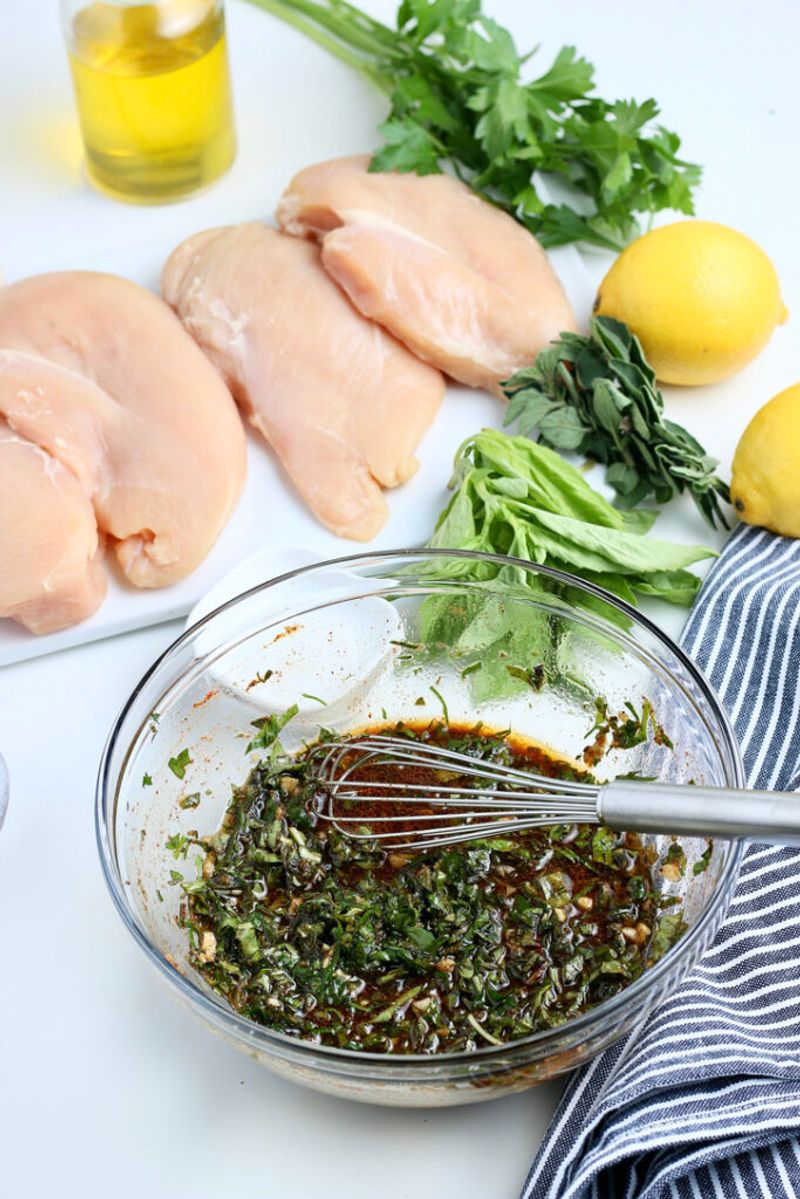
Ingredients like rosemary, garlic, thyme, vinegar, and citrus juices have been shown to block HCA formation during high-heat grilling. They also make meats more flavorful.
Toss meat in these mixtures before grilling to add a layer of protection that actually enhances the final taste.

